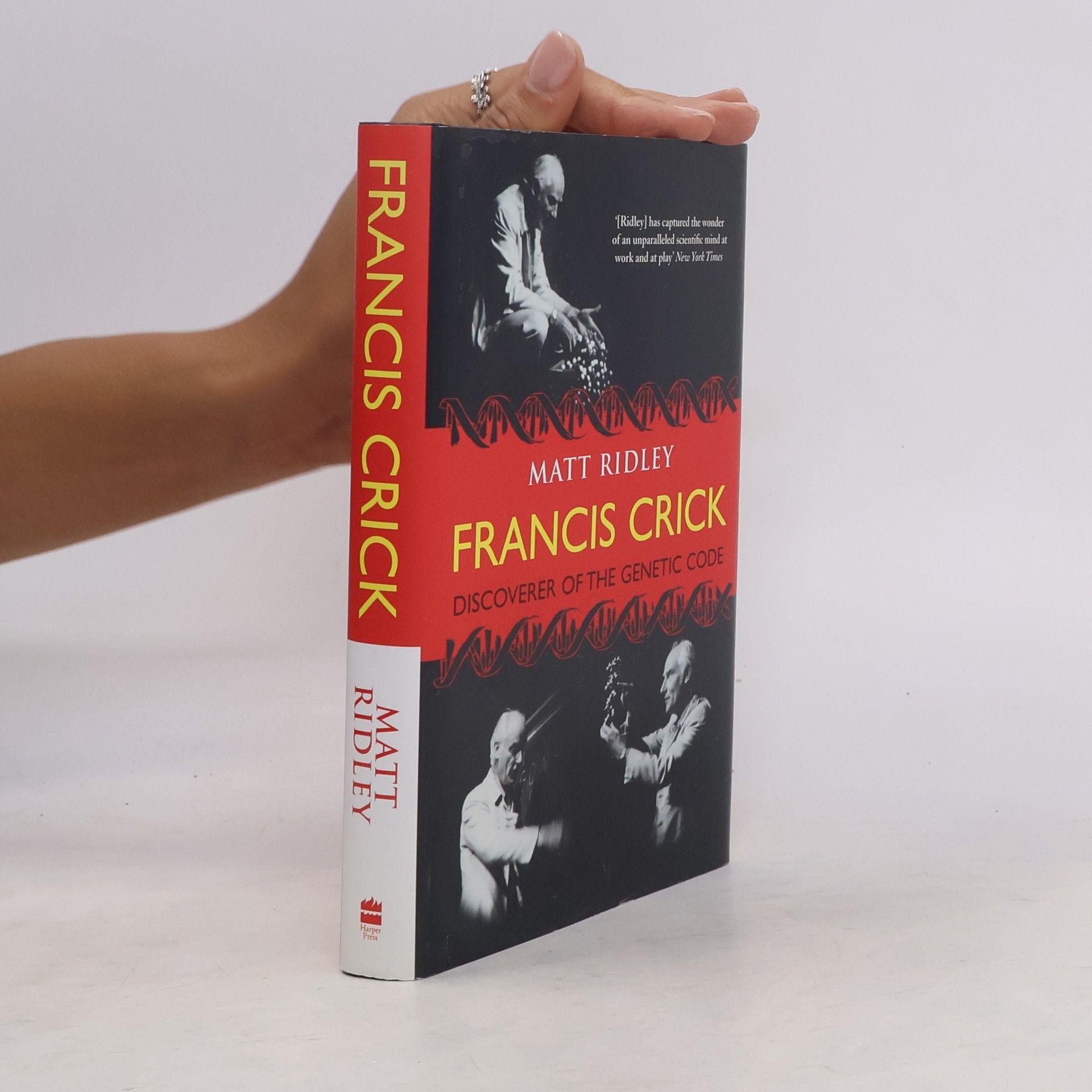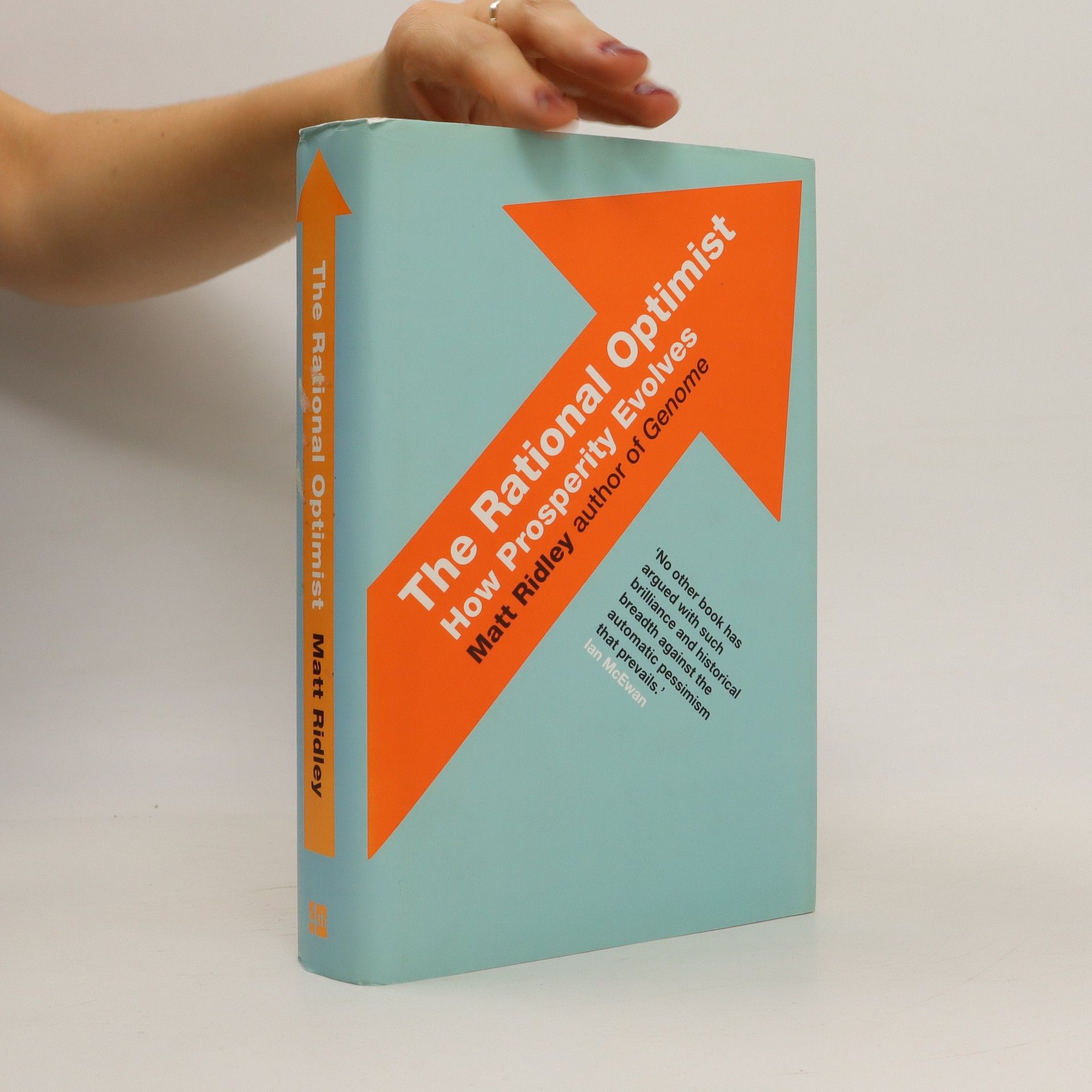The Agile Gene
- 326 pages
- 12 hours of reading
The bestselling author of "Genome" chronicles a new revolution in the world'sunderstanding of genes.
Matthew Ridley is an English science writer and aristocrat whose work delves into the intricate subjects of human nature and progress. With a strong scientific background, he explores how our evolutionary heritage shapes contemporary societies and individuals. Ridley's style is known for its accessibility, translating complex scientific concepts into engaging narratives. His writing prompts readers to consider the profound questions surrounding our past and future.







The bestselling author of "Genome" chronicles a new revolution in the world'sunderstanding of genes.
The extraordinary implications of Charles Darwin's strangest idea
Exploring the unique mating behaviors of birds, this book delves into the origins of beauty and its connection to humanity. Acclaimed science writer Matt Ridley examines how these avian rituals reflect broader themes of attraction and evolution, offering insights into the intricate relationship between nature and human perception.
Understanding how Covid-19 started is more important than we know for the future of humankind. Determining whether the virus came from nature or from a lab will help us to safeguard against the next pandemic.
The "New York Times"-bestselling author of "Genome" and "The Red Queen" offers a provocative case for an economics of hope, arguing that the benefits of commerce, technology, innovation, and change--cultural evolution--will inevitably increase human prosperity.
Ridley traces Crick's life from middle-class mediocrity through his leap into biology at the age of 31 and his co-discovery of the double helix structure of DNA.
Following his acclaimed previous work, the author presents a profound exploration of human behavior's roots. The narrative delves into the intricate question of identity, sparked by the revelation that the human genome comprises only 30,000 genes, significantly fewer than previously thought. This led some to argue that behavior is shaped entirely by nurture rather than nature. However, the author contends that the reality is more nuanced: nurture relies on genetics, and genetics require nurturing. Genes not only shape the brain's structure but also interact with experiences, respond to social cues, and influence memory. They serve as both causes and consequences in the tapestry of human behavior. This work, published fifty years after the discovery of DNA's double helix, chronicles a transformative shift in our understanding of genetics. The author navigates the century-long debate between nature and nurture, illustrating how humans embody a complex interplay of free will, instinct, and cultural influences. This engaging account sheds light on how genes construct brains capable of absorbing experiences, offering a fresh perspective on the age-old nature-nurture dichotomy.
Shortlisted for the Aventis Science Prize in 2000.
Sex and the Evolution of Human Nature
Referring to Lewis Carroll's Red Queen from Through the Looking-Glass, a character who has to keep running to stay in the same place, Matt Ridley demonstrates why sex is humanity's best strategy for outwitting its constantly mutating internal predators. The Red Queen answers dozens of other riddles of human nature and culture -- including why men propose marriage, the method behind our maddening notions of beauty, and the disquieting fact that a woman is more likely to conceive a child by an adulterous lover than by her husband. Brilliantly written, The Red Queen offers an extraordinary new way of interpreting the human condition and how it has evolved.
Matt Ridley explores such perplexing conundrums as why, if humans are such egoistical beings, don't they behave as rational fools and forego the benefits of cooperation. He uses the findings of new research to look afresh at "Mankind".
'Ridley is spot-on when it comes to the vital ingredients for success' Sir James Dyson Building on his bestseller The Rational Optimist, Matt Ridley chronicles the history of innovation, and how we need to change our thinking on the subject.